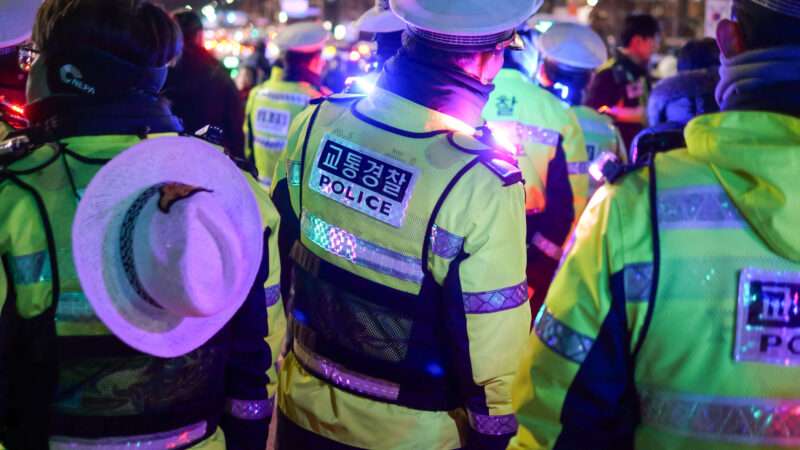
North Korea is a dictatorship, and South Korea is a democracy. That's one of the most basic pieces of conventional wisdom about modern geopolitics. But it wasn't always so. From its independence in 1945 to its final democratization in 1987, South Korea suffered from a series of coups d'état and military dictatorships.
On Tuesday night, the ghosts of the bad old days came back. President Yoon Suk Yeol, facing corruption investigations and gridlock in the National Assembly, declared martial law, banning all political activities and independent media. Soldiers stormed the Assembly building as protesters attacked them with fire extinguishers.
A few hours later, Yoon lifted martial law after his own party and the National Assembly unanimously voted to stop military rule. It was the latest in a series of cartoonish, ham-handed coup attempts that failed over the past few years in the Democratic Republic of Congo, Bolivia, Peru, Russia, Brazil, and elsewhere.
The attempt at a military takeover fell apart soon after it started. In defiance of military orders, 190 members of the National Assembly managed to get into the building. All of them voted to end martial law—under South Korean law, the president must respect such a vote—and soldiers retreated from the building.
Yoon justified military rule by smearing his opponents as North Korean stooges. "I am declaring a state of emergency in order to protect the constitutional order based on freedom and eradicate shameful pro-North Korea anti-state groups that are stealing freedom and happiness of our people," Yoon said on the YTN television station.
The opposition called Yoon's move an obviously unconstitutional coup attempt. "Tanks, armoured personnel carriers and soldiers with guns and knives will rule the country. The economy of the Republic of Korea will collapse irretrievably," opposition leader Lee Jae-myung said in a livestream. "My fellow citizens, please come to the National Assembly."
The Korean Confederation of Trade Unions, the second largest workers association in the country, declared "an indefinite general strike until the Yoon administration steps down." In its statement, the confederation invoked past military coups in 1961 and 1979.
After decades of strongman rule violent transitions of power, South Korea finally became a democracy following the June Democratic Struggle, a mass uprising in June 1987 that forced military dictator Chun Doo-hwan to accept direct presidential elections and a new constitution.
Over the past few months, power in South Korea has been divided between Yoon, member of the right-wing People Power Party, and the left-wing Democratic Party, which controls the National Assembly. The day before the military takeover, Democratic Party lawmakers voted to reduce the government budget by 4 trillion won ($2.82 billion) against Yoon's will.
The declaration of martial law seems to have been a long shot attempt by Yoon to break the gridlock. But it may have backfired badly. The attempted takeover "may very well serve against Yoon's presumed intention to safeguard his rule, by potentially driving South Korean public opinion toward greater support of impeachment," writes James Park in Responsible Statecraft, where I used to be a reporter.
South Korea's most important military backer, the United States, was noncommittal throughout the crisis. Asked about the showdown at the National Assembly, U.S. State Department officials gave a series of vague nonanswers.
"Unfortunately, Washington has a long history of tolerating authoritarian behavior in South Korea, especially when the government in Seoul is right wing, for the sake of cohesion against the North Korean threat," Cato Institute senior fellow Eric Gomez said in a statement before Yoon ended martial law.
However, Gomez pointed out that "South Korea's democratization has led to massive improvements in personal and economic liberty, the general wellbeing of South Koreans, and Seoul's self-defense against North Korean attack."
The post South Korea Avoids a Return to the Bad Old Days appeared first on Reason.com.







